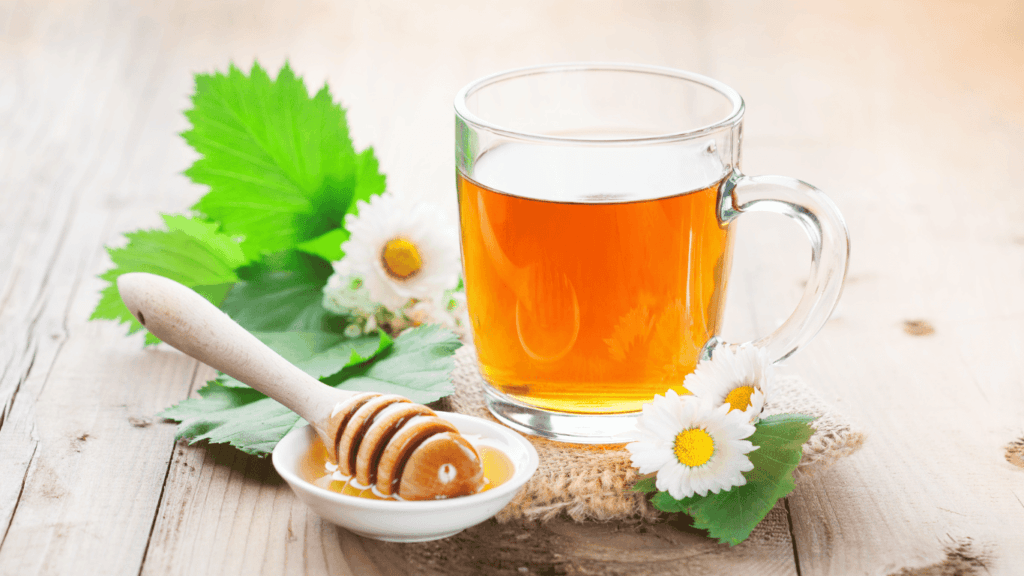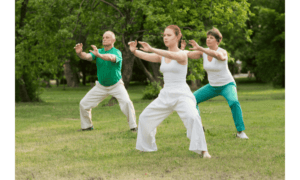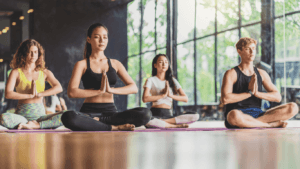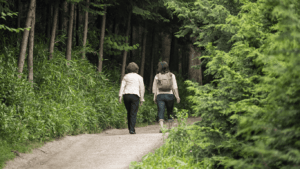The Science Behind Herbal Teas: How They Help Manage Anxiety and Stress
Herbal teas aren’t just flavorful beverages—they offer a soothing path to better sleep, stress reduction, and overall wellness. For centuries, cultures around the world have brewed these natural remedies to calm the mind, rejuvenate the body. Today, use of herbal tea for stress relief has gained much popularity than ever, and are being looked at holistic ways to cope with life’s challenges. From a detox tea like Ballerina tea to a refreshing South American blend like tereré, a wide range is available to suit everyone’s taste and requirement.
This guide, aims at exploring the benefits of herbal tea, uncover whether herbal tea contains caffeine, introduce unique varieties, and share delicious recipes you can try at home. Let’s now dive deep into the world of herbal infusions and discover how they can enhance your well-being.
Key Points
- Herbal tea supports mental relaxation, reduces anxiety, and promotes better sleep.
- Most herbal teas are caffeine-free, but some, like yerba mate, contain caffeine.
- Ballerina is a detox tea aiding digestion and weight management; consume in moderation.
- Cold herbal tea Tereré from Paraguay offers hydration and a refreshing energy boost.
- Herbal tea recipes: Chamomile-lavender for sleep, ginger-lemon for immunity, peppermint-hibiscus iced tea for refreshment.
- Daily use of herbal tea is safe in the morning, afternoon, or evening routines for stress relief.
- Precaution is essential-some teas may interact with medications or cause side effects if overconsumed.
What is Herbal Tea?
Unlike traditional teas, which come from the Camellia sinensis plant, herbal teas are made from a diverse mix of herbs, flowers, fruits, and spices-combinations depend upon the intended health benefits and suiting your taste. Each variety offers distinct flavors and health benefits, making herbal teas for stress relief a versatile choice for improving both mental and physical wellness.
Popular Ingredients in Herbal Teas
Herbal teas come in many forms, each designed to offer unique therapeutic benefits. Some of the most beloved herbal tea ingredients include:
- Chamomile: Known for its calming effects and ability to promote better sleep
- Peppermint: Helps with digestion and relieves headaches
- Ginger: Aids in reducing inflammation and boosting immunity
- Hibiscus: Supports heart health by lowering blood pressure
Does Herbal Tea Contain Caffeine?
Unlike black or green tea, most herbal blends don’t contain caffeine, making them a go-to choice for relaxation, ideal for evening routines or for individuals sensitive to caffeine. However, there are exceptions. Teas like yerba mate and guayusa contain natural caffeine, delivering a gentle energy boost without the jittery effects often associated with coffee.
If you’re aiming to reduce caffeine intake or improve sleep quality, switching to herbal teas can be a game-changer. You get all the comfort of a warm beverage without disrupting your rest or overloading your system with stimulants.
Benefits of Herbal Tea for Stress Relief and Well-Being
Herbal teas offer a host of benefits, nurturing both mental and physical health. From alleviating anxiety to improving sleep, these infusions can make a meaningful difference in your day-to-day life.
Mental Health Benefits
Many herbal teas, such as chamomile and lemon balm, help reduce anxiety by interacting with neurotransmitters in the brain. These teas are known to lower cortisol levels, the body’s primary stress hormone, promoting a sense of calm.
Example
Sipping lavender tea after a stressful day can help alleviate tension headaches and elevate your mood naturally.
Physical Health Benefits
Beyond calming the mind, herbal teas offer several physical benefits. Peppermint tea aids digestion, easing bloating and indigestion, while ginger tea fights inflammation and soothes nausea. Hibiscus tea has been shown to support heart health by lowering blood pressure.
Tip
Try peppermint tea after meals to prevent discomfort and enjoy a light, minty finish.
Improving Sleep Quality with Herbal Teas
If sleep has been elusive, herbal teas like valerian root and passionflower can be your best allies. These teas help relax the nervous system, making it easier to fall and stay asleep.
Advice
Incorporate a bedtime routine with chamomile tea and deep breathing exercises for a truly restful night’s sleep.
Detox and Immune Support
Herbal teas like dandelion and ginger not only help flush toxins from the body but also provide antioxidants that strengthen the immune system. A regular detox tea habit can keep you feeling fresh and healthy, especially during high-stress periods.
Exploring Unique Herbal Teas from Around the World
Every culture has its own herbal tea traditions, each reflecting a different approach to health and wellness. Let’s take a look at some standout examples.
Ballerina Herbal Tea
Also known as 3 Ballerina tea, this detox beverage combines senna and Chinese mallow to support digestion and reduce water retention. While it’s a popular tea for weight management, it’s essential to consume it with care due to its strong laxative effects.
Tip
If you try ballerina tea, stay well-hydrated throughout the day to avoid dehydration.

Cold Herbal Tea from Paraguay – Tereré
Tereré is a cold herbal tea deeply rooted in Paraguayan culture. Made with yerba mate, it’s served cold and often flavored with lime, mint, or cucumber. Tereré is not only refreshing but also provides antioxidants and a mild energy boost, making it a great alternative to sugary drinks.
Suggestion
On hot summer days, swap out your usual soda for tereré to stay cool and hydrated.

Herbal Tea Recipes: Create Your Own Wellness Blends at Home
Crafting your own herbal tea blends is a fun way to explore different flavors and enjoy the benefits of these infusions. Here are three simple recipes to get you started.
Chamomile and Lavender Tea for Stress Relief and Relaxation
Ingredients
- 1 tsp dried chamomile
- 1 tsp dried lavender flowers
- 1 tsp honey
Instructions
Steep the chamomile and lavender in hot water for 5 minutes. Strain, sweeten with honey, and enjoy. This blend is perfect for calming the mind before bedtime.
Immune-Boosting Ginger and Lemon Tea

Ingredients
- 1-inch piece of ginger (sliced)
- 2 lemon slices
- 1 tsp honey
Instructions
Simmer the ginger in water for 10 minutes, then add lemon and honey to taste. This tea is a go-to for supporting immunity and soothing the throat.
Peppermint and Hibiscus Iced Tea
Ingredients
- 1 tsp peppermint leaves
- 1 tsp hibiscus petals
- Ice cubes and mint leaves
Instructions
Brew the peppermint and hibiscus, let it cool, then pour over ice. Garnish with mint for an extra burst of freshness. This iced tea is a refreshing and healthy choice on warm days.
Incorporating Herbal Tea into Your Routine
Making herbal tea a part of your daily routine is easy and rewarding. Here are some ideas for integrating these soothing brews into your lifestyle.
Morning Boost
Kick off your day with ginger or peppermint tea to wake up your senses and support digestion. These teas offer a natural energy lift without the caffeine crash of coffee.
Midday Recharge
Use herbal tea as a chance to pause during the day. A cup of lemon balm tea or yerba mate can refresh your mind and help you power through the afternoon.
Tip
Pair your tea break with a few minutes of mindful breathing to release tension.
Evening Wind-Down
End your day on a peaceful note with valerian root or chamomile tea. These teas can help you unwind and prepare for a restful night.
Advice
Make your evening tea ritual more mindful by focusing on the aroma and flavors as you sip slowly.
Potential Side Effects and Precautions
While herbal teas are generally safe, it’s essential to use them wisely. Some teas, like senna-based blends, can cause cramping if consumed excessively. Others may interact with medications, so it’s best to consult with your doctor if you have underlying health conditions.
Example
Pregnant women should avoid teas containing licorice root, as it may affect hormone levels.
Conclusion: Sip Your Way to Wellness
Herbal teas are a delicious and natural way to reduce stress, improve sleep, and support overall well-being. With so many options to explore—whether it’s Ballerina tea for detox, tereré for refreshment, or chamomile for relaxation—there’s a blend for every occasion.
Experiment with the recipes shared here, embrace herbal tea traditions from different cultures, and let these brews become part of your wellness journey. With each sip, you’ll find yourself feeling more balanced, refreshed, and ready to tackle whatever life throws your way.
FAQs about Herbal Tea
1. Does herbal tea have caffeine?
Most herbal teas are naturally caffeine-free, though exceptions like yerba mate do contain some caffeine.
2. What are the best herbal teas for stress relief?
Chamomile, lavender, lemon balm, and valerian teas are known for their relaxing effects.
3. Can herbal tea help with weight loss?
Yes, teas like ballerina tea aid digestion and reduce water retention, supporting weight management.
4. How often can I drink herbal tea?
Herbal teas are safe for daily use, but it’s wise to consume stronger varieties like senna-based teas in moderation.
Additional Sources
1. National Center for Complementary and Integrative Health (NCCIH): Provides research-backed insights into herbal supplements and teas.
2. Journal of Herbal Medicine: Offers studies on the health benefits and therapeutic uses of herbal teas.
3. American Herbalists Guild (AHG): A trusted organization promoting the safe use of herbal remedies.
4. The Tea Association of the USA: Information on the history, science, and consumption trends of tea, including herbal varieties.
5. Paraguayan Yerba Mate Institute: Explore tereré’s cultural roots and benefits.






